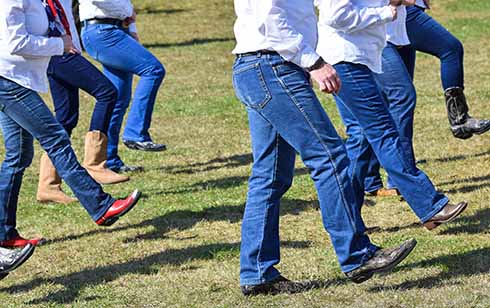 Groucho Marx once said famously, 'I wouldn't want to be a member of any club that would accept me as a member'. His line illustrates the paradox of social exclusion. We want to be included by people whom we envy and we feel sorry and bitter if we are excluded. But we don't treasure the company of the people who might accept us.
Groucho Marx once said famously, 'I wouldn't want to be a member of any club that would accept me as a member'. His line illustrates the paradox of social exclusion. We want to be included by people whom we envy and we feel sorry and bitter if we are excluded. But we don't treasure the company of the people who might accept us.
In fact, we might be tempted to exclude them. We don't always notice this dance of inclusion and exclusion in ourselves or our society. For that reason, Social Inclusion Week (21-29 November) is a helptful time for reflection.
TIMELY REFLECTION
The reflection is timely. In recent years people have spoken much more openly about what it is like to be excluded. We are better informed about what it means to be racially profiled and so more likely to be searched and treated badly by police, to be looked over for jobs in favour of people less qualitfied, to be abused on trams and buses for the colour of our skin and to be laughed at because of some perceived difference. It is hard not to be moved and angered by these stories. Our hearts go out to the people so excluded. Our hands then have a good chance of following. But first we shoud ask ourselves why people are discriminated against and excluded.
Many people excluded have been disadvantaged by birth and by their place of living. Many were born into unstable relationships, had a precarious childhood in which they were subject to domestic violence and constant anxiety, suffered from bodily and mental illness, lacked access to health care and steady education, perhaps had to deal with addiction and dealings with the justice system, and lived in areas of high unemployment.
EFFECTS OF EXCLUSION
In a more supported environment, family, health services, schools and local groups would help children to integrate with society and to find a way to contribute to it. Where these supports are weak or absent, young people naturally find it difficult to master the skills and the self-confidence to make connections. As they are excluded from society, too, they will learn to exclude others from their lives.
Where people's relationships have been closed down by experiences of rejection, uncertainty and fear from childhood, they must find encouragement to re-open them peep-hole by peep-hole, curtain by curtain, door by door. It all begins with finding respect for themselves as persons, not for their looks, their money, the way they speak or their use to others. Social inclusion depends on social friendship – the readiness in ourselves and in others to welcome others into our lives and not to exclude them.
To show respect for others we need to find respect for ourselves. For this reason, where connections have not been made they must be built in a slow way through good relationships.
THE COURAGE OF WELCOME
The qualities necessary for this are enshrined in the Jesuit Social Services motto: Welcoming, discerning, courageous. All three qualities are necessary when accompanying young people with multiple disadvantage to engage confidently with society. Te be welcomed can be a strange experience for peopelwho have faced rejection at every turn since childhood. We might expect the welcome to be tested and the road to connection to be marked by many moments of disconnection.
In such circumstances to be unfailingly welcoming also requires discernment and courage. We need to hang in. But the road is worth walking because of the unique value of the persons whom we help to connect.